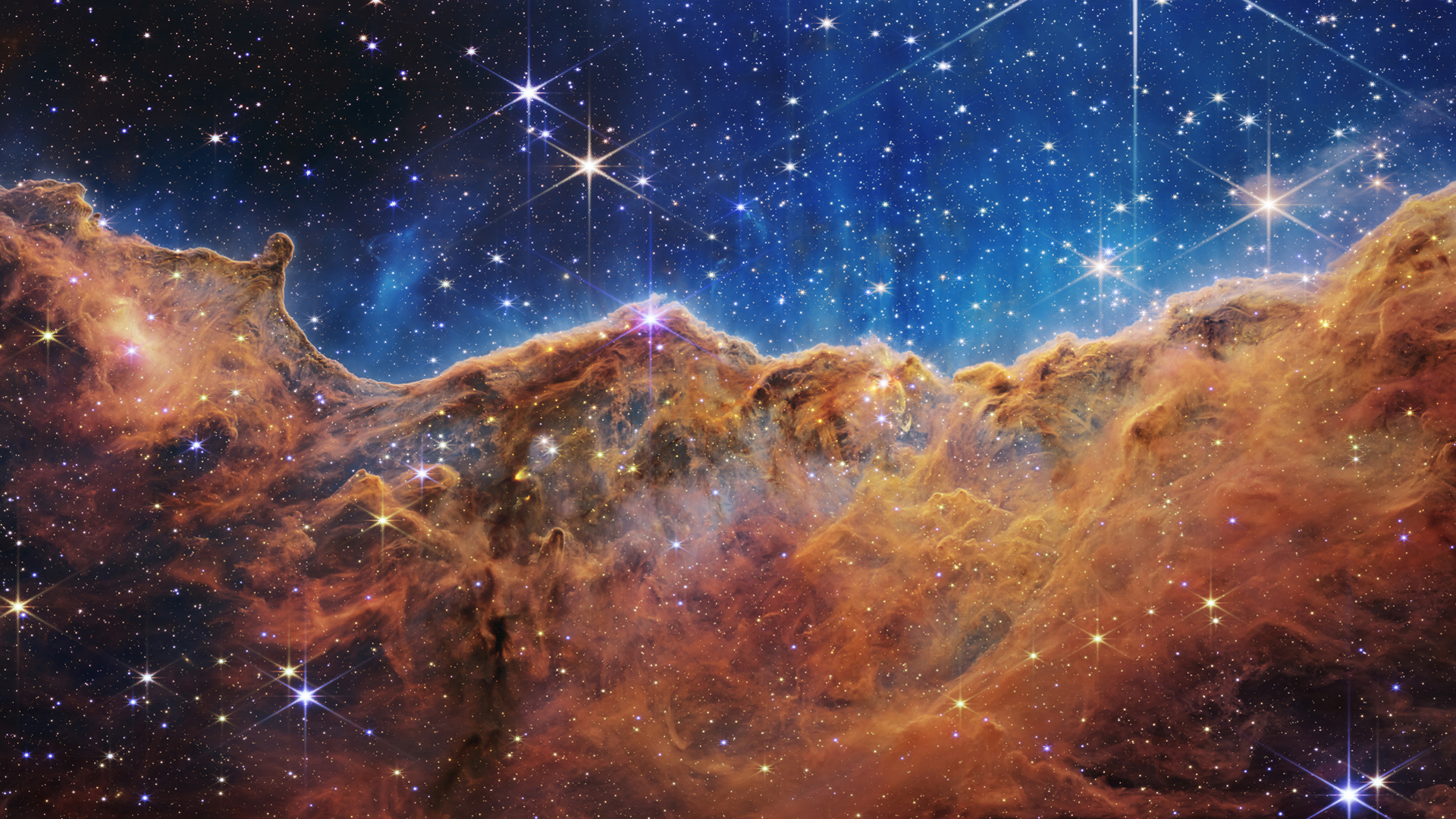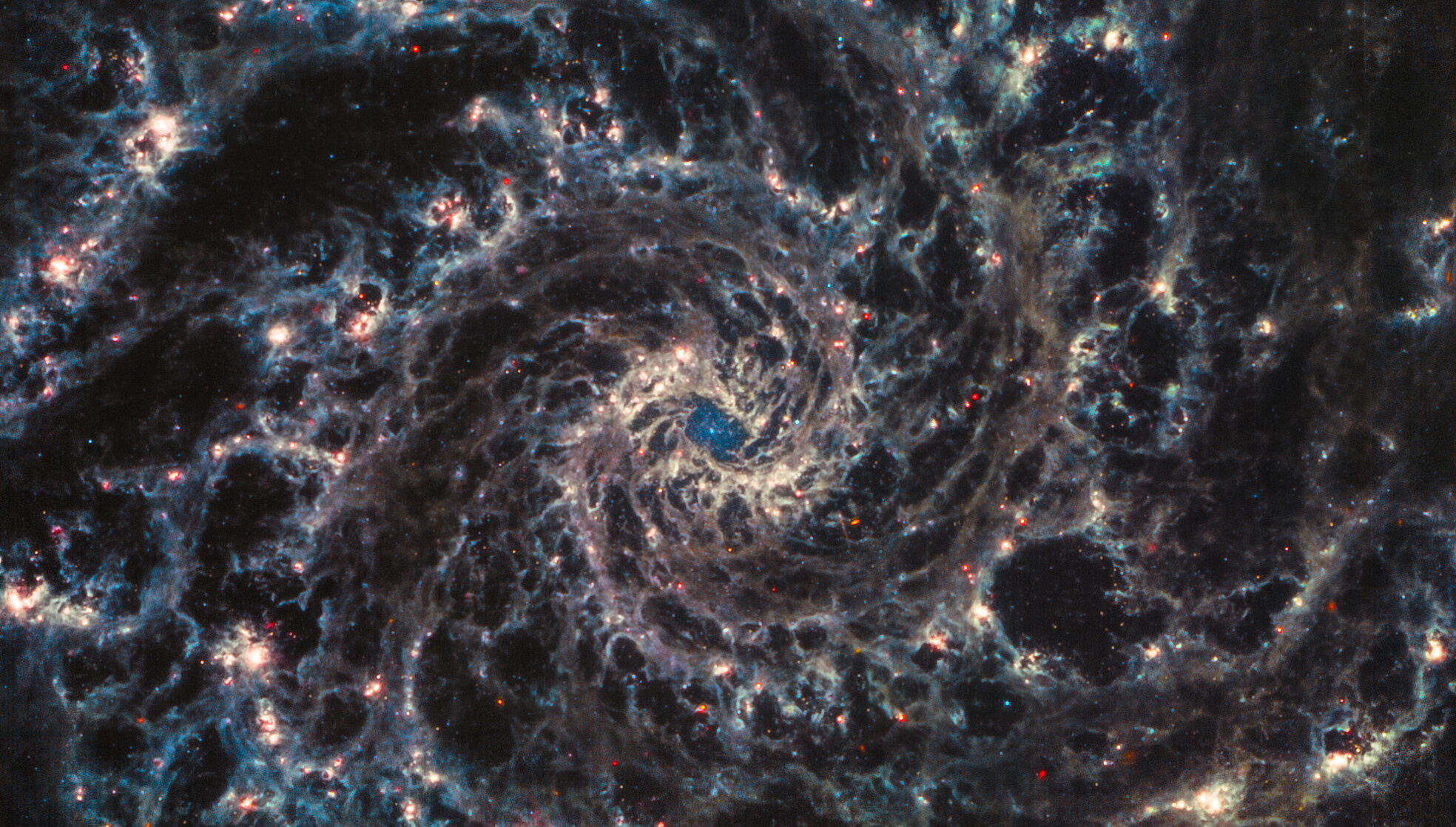NASA may unlock future James Webb Space Telescope data

Someday, you may be able to see fresh data from the James Webb Space Telescope as soon as the scientists who proposed gathering it do.
The James Webb Space Telescope (Webb or JWST) stunned the world in July, when scientists released the first science-quality images from the observatory. For now, however, the public are only allowed to see a fraction of the data the telescope is gathering. It's a hot competition to snag time using the observatory, and the winners are rewarded with both the observations and a one-year head start on analyzing them under the current system. But NASA is considering changing that policy and opening fresh data from the $10 billion observatory to the world at large, and scientists are divided.
"It's a quite controversial subject," Alessandra Aloisi, head of the Science Mission Office at the Space Telescope Science Institute (STScI) in Maryland, which operates both JWST and the Hubble Space Telescope, told Space.com. "Because there are pros and cons of both solutions."
The debate stems from a directive the White House Office of Science and Technology Policy released in August stating that, by the end of 2025, research published based on federally funded data must make that data freely available right away. NASA is considering going one step further and requiring that all the data it funds be opened to the public without delay, so STScI has asked scientists to share their thoughts on the issue.
Making JWST data immediately public would build on, for example, astronomers' use of the preprint server arXiv.org, where the public can read the latest scientific research for free, without an expensive journal subscription. "The whole astronomical community is going more and more toward open access," Aloisi said.
But despite the steady stream of headlines about JWST observations, only about a quarter of the telescope's planned observations for its first year are being released immediately, according to the magazine Science, with the remaining 75% locked away.
Get the Space.com Newsletter
Breaking space news, the latest updates on rocket launches, skywatching events and more!
UnlockingJWST's data right away could open new science to researchers who don't have the resources to apply for observing time themselves, Aloisi noted. And scientists developing plans for new observations would have more existing data to work from earlier, potentially speeding up the scientific process.
After all, although discoveries themselves rely on actual data, someone has to have the idea to gather that data — and scientists generally want credit for their ideas. The one-year exclusive access period on JWST data is meant to be enough of a head start that the research team behind the proposal becomes the research team that publishes its findings first.
"The idea is that the people that got the scientific idea and got the data were allowed to have a period of time when they didn't have to worry about being scooped or somebody else stealing the data and stealing their idea," Aloisi said.
That exclusive time also gives astronomers the breathing room to do their analysis more carefully, another potential casualty of changing the data policy. "Some people claim it may result in lower quality science because people will rush to get it published before they're scooped by somebody else," Aloisi said.

Changing culture
JWST observers will retain their one-year exclusive access for at least the next year and a half of observations, Aloisi said, since STScI has already begun accepting proposals for JWST's second year of science, which will begin next July. In addition, NASA already has written agreements with its partners on the mission, the European and Canadian space agencies, that specify a one-year exclusive period. Any change to JWST data-handling procedures would require those agreements to be adjusted.
"It's not going to happen overnight," Aloisi said, and eliminating exclusive access altogether likely won't happen in one fell swoop either. "My guess is that for JWST, it will be something more gradual than from 12 months to zero."
And STScI has precedent for making such policy changes with success, she said.
In 2018, the institute tested making scientists' proposals to use Hubble anonymous in hopes of increasing the diversity in selected observers, despite concerns that astronomers wouldn't be able to emphasize their personal experience in proposals, or that someone unqualified might manage to win time.
"Dual anonymous reviews — they were very controversial at the beginning, but the institute stuck to it, we figured out a way to do it, we implemented it, and now it has become the standard in how to review proposals," Aloisi said.
And the institute has also adjusted the exclusive period for Hubble observations. When the telescope launched in 1990, scientists who had won time to use Hubble had a one-year head start, like JWST observers today. But the institute decided to halve that period to six months for observations beginning in late 2017, raising concerns from astronomers.
"Now we have done the transition, nobody remembers that," she said. "It all goes smoothly as before." She also noted that, while there isn't a formal process for astronomers to register complaints about being scooped, the institute hasn't seen an increase in informal reports.
Aloisi also believes that STScI can build a middle ground between a one-year exclusive period and immediate access, like developing a way astronomers can note in their proposal that they want to retain the exclusive period or instituting a policy that requires scientists publishing based on fresh data to offer the original proposal co-author status.
But the bigger need, she said, is to change the way astronomers behave.
"We need to create a culture where if we move toward open access data, that the members of the astronomical community are respectful of each other and don't try to do the exact same science that other people are doing and they got the data to do," she said.
Email Meghan Bartels at mbartels@space.com or follow her on Twitter @meghanbartels. Follow us on Twitter @Spacedotcom and on Facebook.
Join our Space Forums to keep talking space on the latest missions, night sky and more! And if you have a news tip, correction or comment, let us know at: community@space.com.

Meghan is a senior writer at Space.com and has more than five years' experience as a science journalist based in New York City. She joined Space.com in July 2018, with previous writing published in outlets including Newsweek and Audubon. Meghan earned an MA in science journalism from New York University and a BA in classics from Georgetown University, and in her free time she enjoys reading and visiting museums. Follow her on Twitter at @meghanbartels.









